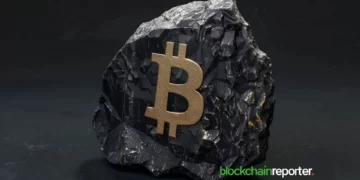Despite the bear market, the Digital asset investment products still saw inflows amounting to US$64m last week; according to an article Coinshares shared on medium, the majority of the funds were put into short-bitcoin investment products.
Other regions such as Brazil, Canada, Germany, and Switzerland had small inflows sent into a long investment totalling US$20M. This proves that investors are taking advantage of the bear market and longing positions at current prices, with inflows into short-Bitcoin probably because of first-time accessibility in the United States, instead of the renewed negative conception.
Digital Assets Inflows Highlights
First, Bitcoin, the world’s largest cryptocurrency by market cap, saw some slight inflows estimating US$600k over the week. Short-Bitcoin, on the other hand, saw inflows recording to US$51m after the product launch in the US.
Next is Ethereum, the second-largest cryptocurrency by market cap. Last week, Ethereum had the second week of inflows totalilng US$5m while also breaking the 11-week spell of outflows.
Multi-asset/crypto investment products which were the least involved by recent negative sentiment with minor outflows in only two weeks of this year, also saw inflows totalling up to US$4.4m.
Altcoins also saw inflows, indicating investors are starting to diversify again. Altcoins such as Solana, Polkadot, and Cardano total US$1m, US$0.7m, and US$600k, respectively.
MoHash Raises $6M Funding To DeFi
The collapse of UST, which occurred recently, proves that Web3-based stablecoins today are tied to high-risk and often unsustainable assets. However, as DeFi is attempting to expand more across the crypto space, it seems as though it would require an alternative source of yields.
During the last DeFi summer, yields on USDC across all lending protocols varied from 4%-6%, according to Md Halim, founder of DeFi startup ZeFi. In fact, at times, yields go as high as 9%.
He added: “As the value of Bitcoin and Ethereum goes up, the demand for loans against them also skyrocket, causing higher yields. But now that market is trembling in fear, “lots of large funds/whales have suffered losses, which has caused a “cascading effect on players who loaned to them. The lenders, in turn, are liquidating their collateral to recover the loans, leading to a further decline in the prices of BTC/ETH and other assets. That’s reflected in the contraction of TVL in DeFi protocols in terms of absolute units of assets locked.”
MoHash Intervenes
MoHash, a Devarajan startup, is now working to build a decentralized finance (DeFi) protocol that will tap global capital and liquidity for alternative assets in fast-growing economies.
On Thursday last week, MoHash announced its seed funding of $6 million to bring sustainable, stable yields to decentralized finance (DeFi) in a session hosted. This session was headed by Quona Capital and Sequoia Capital India. Others such as Jump Crypto, Ledger Prime, Hashed Ventures, CoinSwitch, and Coinbase Ventures also participated in this session.
Shailesh Lakhani, managing director at Sequoia Capital India and in Southeast Asia, made a statement during this session and said: “MoHash is bringing real-world assets to DeFi users globally and providing sustainable, uncorrelated, and hard-to-access yields on-chain for the first time,”
Shailesh added and said “We think that this is exactly the type of product DeFi needs, one that leverages the strengths of blockchains and helps solve a real-world problem. We’ve loved working with them over the past few months, and Sequoia Capital India is thrilled to co-lead this financing.”






















